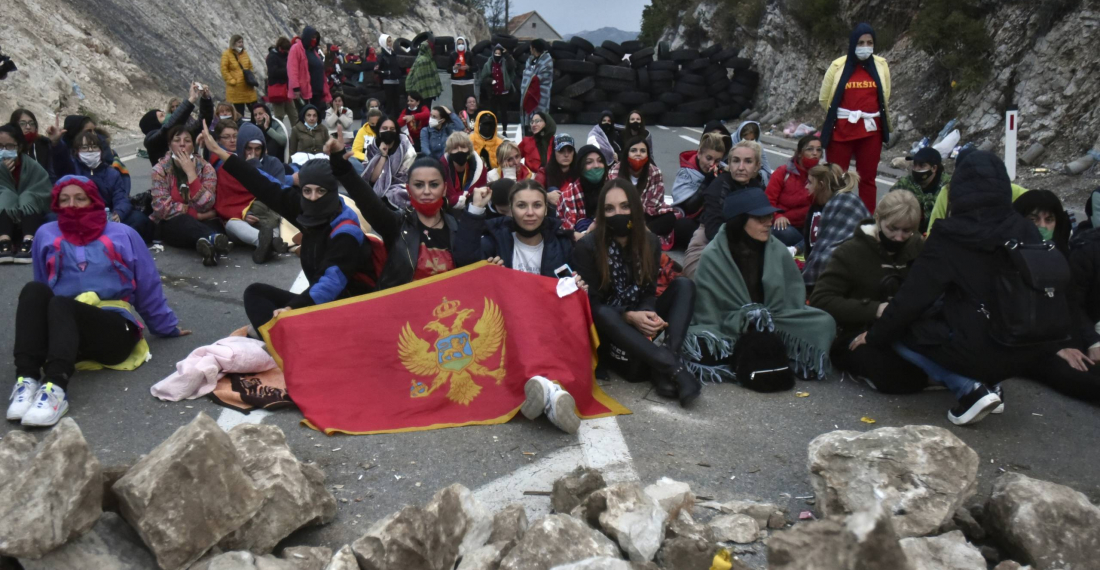In the Montenegrin historical town of Cetinje, protesters and riot police clashed on Saturday (4 September) during a demonstration against the inauguration of the new Bishop Joanikije II as head of the established Serbian Orthodox Church. Joanikije’s predecessor as the church’s leader in Montenegro, Amfilohije Radović, died in October after contracting COVID-19. On Sunday (5 September) protestors again clashed with police as the installation ceremony was taking place.
"This is Montenegro, this is not Serbia”, several thousand protesters shouted on Saturday.
Protesters tried to set up blockades in and around the city using car tyres and rubbish bins, so that the site of the inauguration becomes inaccessible. Many protesters also spent the night at the barriers amid reports that police were sending reinforcements to break through the blockade. According to international media, police used tear gas in some places to disperse protesters.
The Balkan country of Montenegro seceded from neighbouring Serbia in 2006 after a referendum. However, around 30 per cent of the country's 620,000 inhabitants still consider themselves Serb. The main Montenegrin church also remained attached to the Serbian Orthodox tradition. The Serbian Orthodox Church is still the dominant religious institution in the Balkan country, with 70 per cent of Christians affiliated with it. This connection with Serbia regularly leads to tensions within the country.






